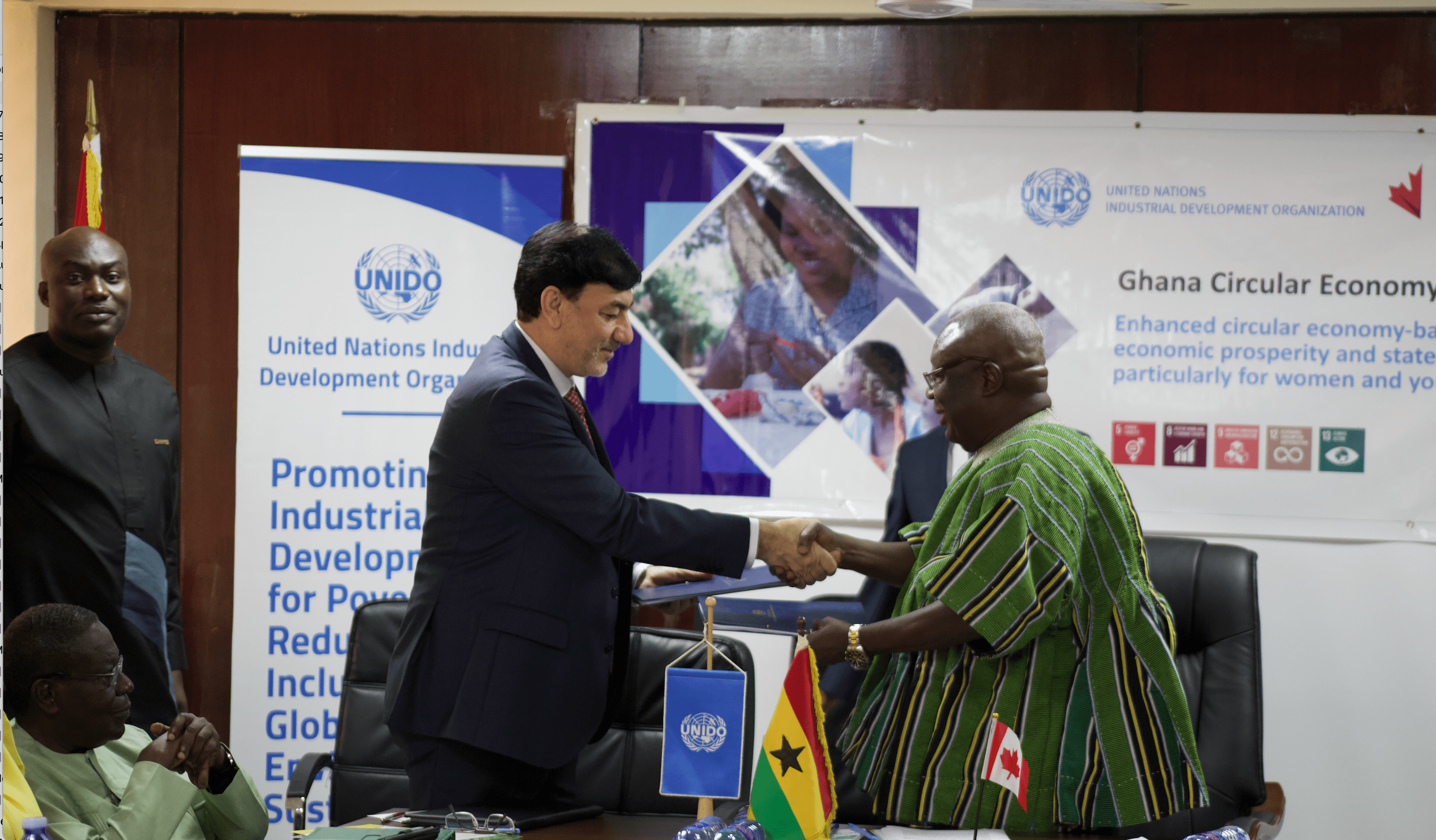UNIDO, Canada and Ghana launch Ghana Circular Economy Centre to support the country’s transition to a circular economy
07 June 2022

ACCRA – The United Nations Industrial Development Organization (UNIDO), Global Affairs Canada and the Government of Ghana, through the Ministry of Environment, Science, Technology & Innovation (MESTI), have launched the Ghana Circular Economy Centre Project to support the country’s just transition to a circular economy.
“As Ghana seeks to diversify its economy, create export revenue and improve labour and capital productivity, it is also aiming to become a global leader in the transition to circular economy”, said Dr. Kwaku Afriyie, Minister for Environment, Science, Technology and Innovation (MESTI), during the launch event. He reminded stakeholders about the need for all to contribute to environmental protection by thinking and acting circular at all times, “Transitioning to a circular economy will be advantageous to Ghana and will help the country generate green decent jobs, reduce inequality, minimize the impact of climate change on the environment, and provide the economy with a competitive advantage”.
In her remarks, the High Commissioner of Canada to Ghana, H.E. Kati Csaba highlighted the Government of Canada’s commitment to support Ghana in its quest to become a circular economy leader saying, “We have a shared responsibility to preserve natural resources for future generations, as natural resources are a source of livelihoods for so many Ghanaians. For this reason, Canada is pleased to partner with UNIDO and MESTI to increase the adoption of circular economy technologies and practices throughout the country.”
“UNIDO is grateful that the Government of Ghana has reaffirmed its trust in the Organization to further foster the country’s transition to a circular economy”, said UNIDO Representative to Ghana and Liberia Fakhruddin Azizi. “We also very much appreciate the Government of Canada’s support and hope that the Ghana Circular Economy Centre Project will be a stepping stone on which we can further the strategic engagement with Canada to advance common priorities in our partner countries”.
The transition to a circular economy requires a systemic approach, with focus on the broader enabling conditions, including strong regulatory frameworks, institutional coordination mechanisms, technology transfer, the build-up and sharing of knowledge and intelligence, capacity building, and awareness of the principles and practices of circularity within various value chains.
The 7.5 million Canadian dollar (or approximately six million USD) project will be implemented by UNIDO over a 5-year period in coordination with MESTI with funding from the Government of Canada via Global Affairs Canada. It seeks to promote circular economy-based and inclusive business models, particularly among women and the youth, while finding innovative ways to reduce negative environmental impacts. Ultimately, the project will improve the ability of entrepreneurs, particularly women, the youth and those within the informal sector, to access resources and technologies that would enable them to identify, design, develop and scale up circular economy business models. Circular economy is opposed to a linear economy as it aims for more resource efficiency and less waste.
For more information, please contact:
Ulvinur Müge Dolun
Industrial Development Officer, UNIDO